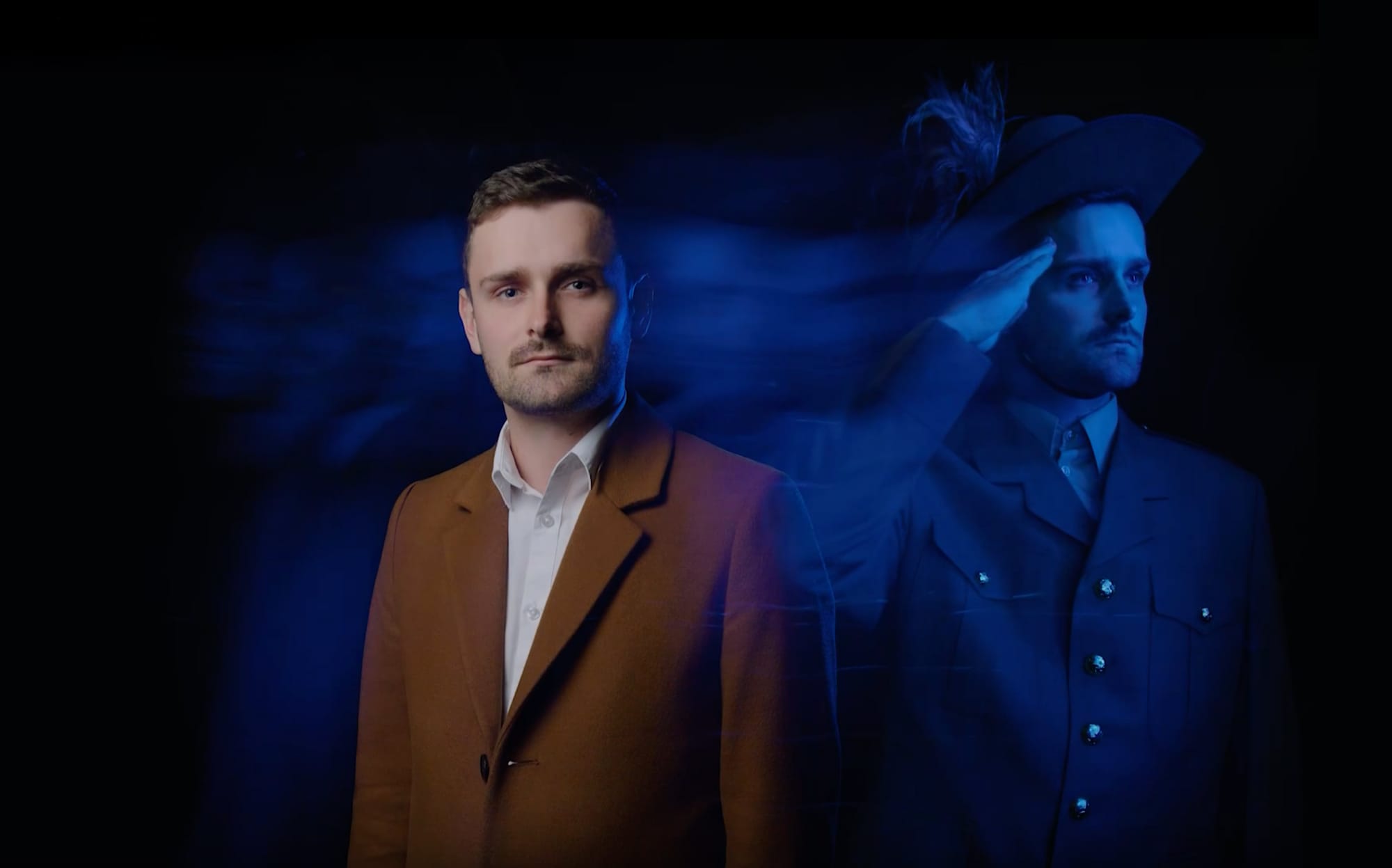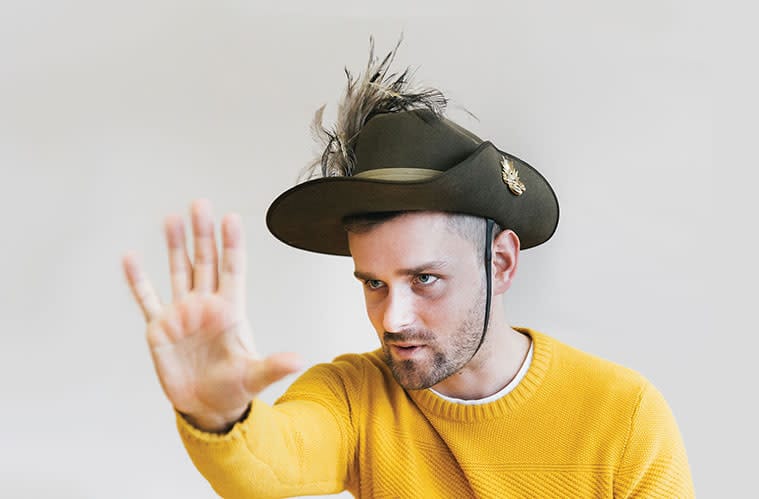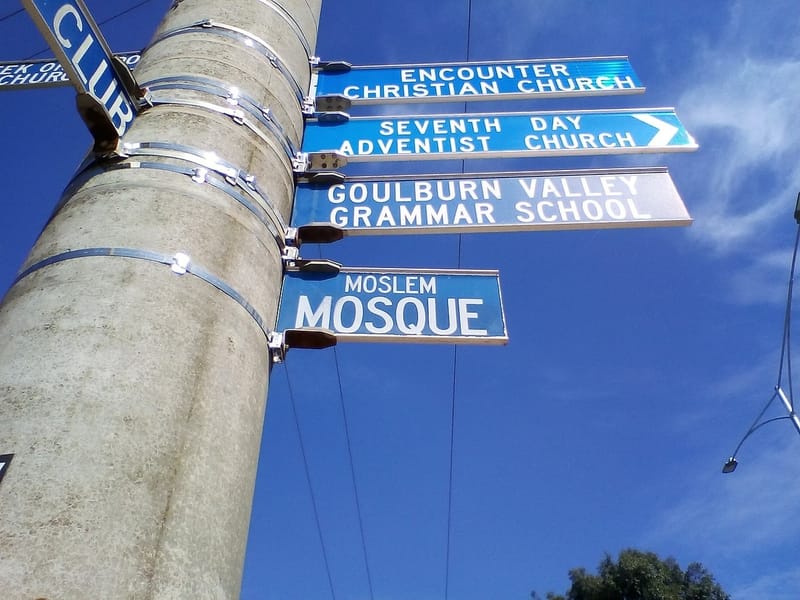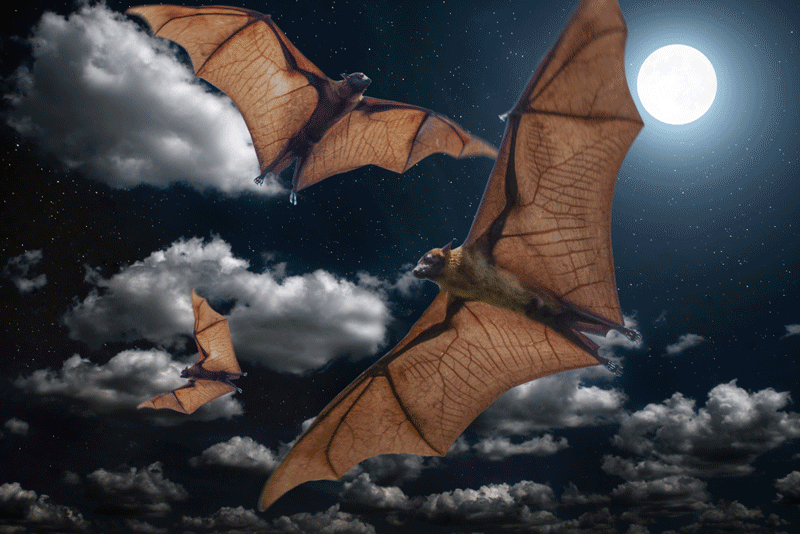
When actor Tom Molyneux takes to the stage in his one-man play The Mission, he carries thousands of years of history on his shoulders.
Written by the Monash University performing arts and law graduate, The Mission dramatises the epic life story of his great-great-uncle, Allan McDonald, one of Victoria’s first Indigenous soldiers to enlist for war. After fighting in some of World War I’s most storied campaigns, including Gallipoli and Beersheba, McDonald was denied a soldier’s settlement block on his return to Australia, and had to witness his traditional lands carved up for the benefit of white soldiers.
“Two years ago, I heard a little snippet of a story my dad found in researching our family’s history, of Uncle Allan who went to fight in Gallipoli, and was taken by this amazing life that none of us knew anything about,” Molyneux says.
“I thought, there has to be a theatre piece in it to bring the story of Allan to life, and give him a way to be recognised and remembered along with other Indigenous people who experienced the cruelties of the era.”

The Mission combines the personal, political and performative as it charts the lives of both Molyneux and his Uncle Allan, entwining them with the history of the Gunditjmara people – the traditional owners of the area now encompassing Warrnambool, Port Fairy and Portland in southwest Victoria.
The fracture lines running through Molyneux’s family story are typical of an era marked by the callous horrors of the Stolen Generations and state-sanctioned programs to force Indigenous people into missions, where every effort was made to expunge their culture and languages.
"This project has been part of a broader quest for me and my dad when we’ve tried to reconnect with the Gunditjmara community."
His Gunditjmara grandfather was sent to an orphanage as a baby with his six siblings and adopted by a white family from Geelong. The connection with his people was severed so comprehensively that only as a teenager did he discover that his friend Margaret, adopted by another white family, was really his sister.
“It was a friend of his who said, ‘You know she’s your sister, right?’, and it opened a whole can of worms for him. When you have a major disruption like that it can be hard to reclaim or rediscover that part of your identity,” Molyneux says. “This project has been part of a broader quest for me and my dad when we’ve tried to reconnect with the Gunditjmara community. That’s really how we stumbled across Allan’s story – when we went to talk to the elders and find out exactly where we fit into the puzzle.”
Piecing together the Gunditjmara story
The puzzle is large and complex, and a source of pride. Gunditjmara country includes the area known as Budj Bim, home to the remains of an ancient aquaculture system that saw the traditional owners systematically trap and farm eels. The regular supply of food allowed them to settle permanently in stone dwellings.
Budj Bim was added to the UNESCO World Heritage List in July, taking the Gunditjmara story to a global audience. The listing is expected to bring an estimated 100,000 visitors to Victoria’s southwest each year.
But some 6500 years after the first historical dating of this sophisticated aquaculture system, Allan McDonald was fighting for more than just recognition. First, he had been an enlisted man in Turkey and Palestine (“Aboriginal people weren’t officially allowed to enlist, but if you had lighter skin they’d turn a blind eye”); then he had been fighting as a returned soldier forced to watch on as his lands were given to returned white soldiers.
Molyneux became an amateur historian to uncover the story, enlisting the help of Gunditjmara elders, and sourcing oral histories and historical records – both official and unofficial – at the Australian War Memorial and Public Record Office Victoria.
“I feel like I’ve been welcomed back into the Gunditjmara community with open arms. I’m certainly not the only one with a story like this, but I feel there’s a real connection for me with the people and the land there."
Debuting to positive reviews at last year’s Melbourne Fringe Festival and since performed across Victoria, the 55-minute play brings to life the legend of the “fighting Gunditjmara” – the fierce warriors who fought the British invaders in bloody frontier wars and continued to resist, both subversively and overtly, into the current era.
Driven by justice
The Mission charts McDonald’s ongoing fight for the rights of his people in the face of institutionalised racism, including his instrumental role in getting electricity and water for his community at Framlingham. “Allan is a man who obviously fought for what he believed in. He fought for justice, whatever the cost,” his great-great-nephew says.
The notion of justice has been a driving force for Molyneux through university and beyond. An Indigenous merit scholar, he lived “on res” at Mannix College and was aided during his studies by the Yulendj Indigenous Engagement Unit. He centred his law degree on human rights, and now he juggles acting with his role as cultural engagement officer, focusing on Indigenous inclusion, at Deakin University.
That acting won over the law was something of a moot point: “I always wanted to keep acting in my life, which wasn’t difficult given the great relationships I formed in the performing arts degree at Monash, and the uneven work/life balance of law wasn’t something that particularly appealed to me.”
The performing arts degree – now rolled into a Bachelor of Arts – was a crucible for Molyneux and his contemporaries, many of whom continue to work together in independent theatre productions. The Mission director James Jackson is another Monash alumnus, and Molyneux credits the strength of the teachers for laying their students’ reputational groundwork.
Representing your family on stage is a daunting proposition, but representing a culture takes it to the next level. For Molyneux, each performance of The Mission has been a “slightly terrifying experience”.
Yet the two-year process, from the first mention of Allan McDonald’s name to The Mission’s debut last year, has been a journey rich with reconnection.
“I feel like I’ve been welcomed back into the Gunditjmara community with open arms. I’m certainly not the only one with a story like this, but I feel there’s a real connection for me with the people and the land there. They’ve approached this with open hearts and minds, and I’m grateful.”





